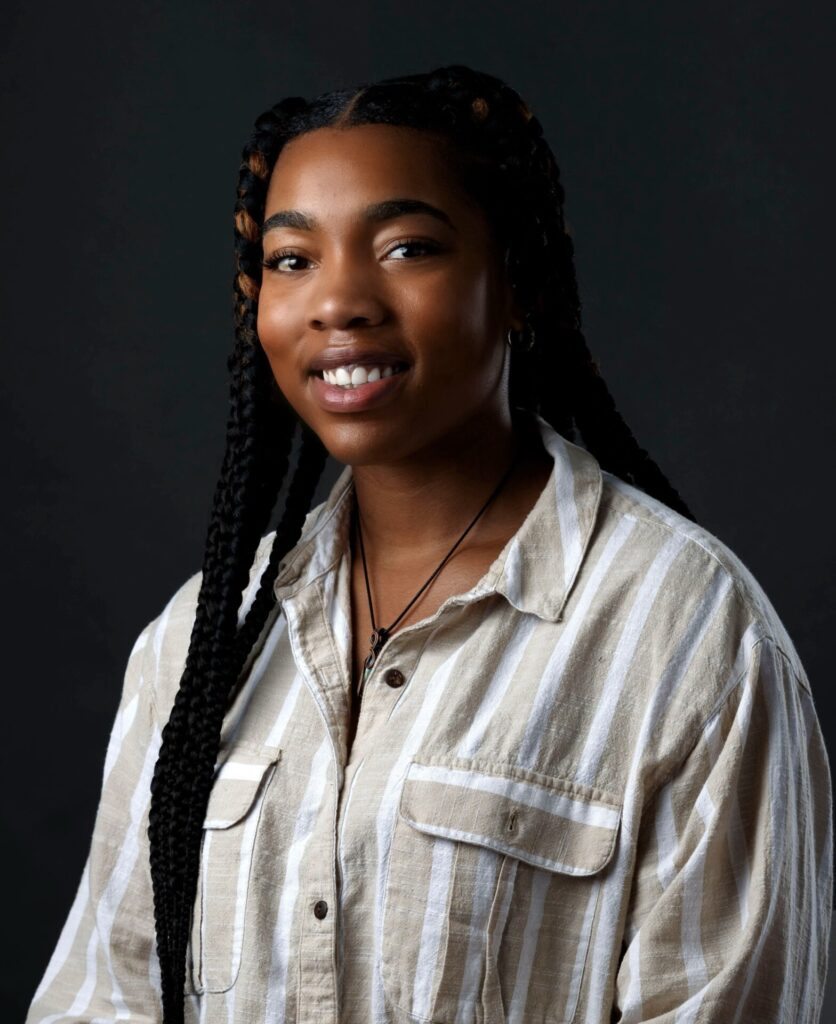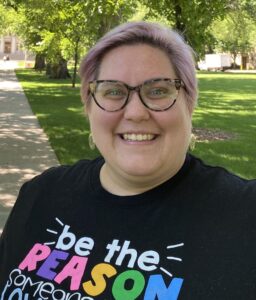From working out to working
Grassroots program advances success of student athletes story by Bruce Hallmark published Nov. 14, 2023On a cold day in the fall of 2011, an idea germinating in the heart and mind of Blanche Hughes (M.E.D., ’84; Ph.D., ’95), vice president of Student Affairs, began to coalesce. She and her husband, Wayne, were watching a Colorado State University football game in the old Hughes Stadium, surrounded by faculty and staff.
The team was losing the game, and angry and disappointed colleagues called the players “losers,” “worthless,” and worse.
Hughes, who had worked closely with student-athletes and the Department of Athletes throughout her career, especially as the former director of the Black Student Services (now the Black/African American Culture Center), was increasingly frustrated by the denigrating comments and the barriers preventing the CSU community from knowing players as individuals.
“I had been thinking a lot about that, and it really bothered me,” Hughes said. “I had personal relationships with many athletes, and I knew it was really hard for them to see the rest of the university or engage in other activities because most of their time is spent managing academics, dealing with life challenges, and participating in their sports.”
Student-Athlete Support Services in the athletics department had recently begun reporting to Hughes, so she met with its former director, Steve McDonnell, to discuss ways to provide experiences for student-athletes to gain exposure to the campus and for the campus to get to know them better. Follow-up conversations included Craig Chesson (M.S., ’01; Ph.D., ’09), currently the dean of students and assistant vice-president for Student Affairs, and Judy Brobst, formerly a career education manager in the Career Center.
Bridging the gap
After putting their heads together, what emerged was a summer program that provided student-athletes with a career course the first year that included an on-campus internship and, in subsequent years, offered paid internships to get them connected to the campus community.
While in high school, many top athletes don’t have the opportunity to hold part-time jobs because of the year-round time commitment to their sports. Being a collegiate athlete only exacerbates that predicament, but they have lighter schedules during the summer months.
Many campus offices and departments that provide students internships in the fall and spring semesters, unfortunately, lack funding for them in summer. Hughes personally reached out to staff in the Division of Student Affairs and other partners on campus to find or create summer internship opportunities and helped solicit private donations to compensate students for their work.
The Student-Athlete Internship Program was launched in June 2012. Since then, the program has benefited more than 125 student-athletes from numerous sports, including football, men’s and women’s basketball, track and field, and women’s volleyball.
Drew Moss, a junior studying finance, is also an offensive lineman on the football team. This past summer, he helped staff the front desk for the Office of Financial Aid and compile data on people requesting financial assistance.
“Being in a professional environment around such amazing people was a blast,” Moss said. “I’ve never done anything like that before, and just learning office etiquette and ways to communicate helped me a lot. I also used Excel, which improved my technical skills.”
Hollywood internships

As a sophomore in 2014, Rashard “Hollywood” Higgins was a finalist for the Fred Biletnikoff Award, presented annually to the most outstanding receiver in American college football. He was also participating in the Student-Athlete Internship Program. He had completed two on-campus internships, the first in the Office of Student Affairs with Vice President Blanche Hughes.
According to Hughes, a reporter with Sports Illustrated came to campus to interview Higgins about the award. While being interviewed, Higgins said, “I want to take you to meet the people at my summer internship” (which was in University Advancement). Then I want to take you to my first internship with the vice president for Student Affairs.”
Hughes met the reporter when he and Higgins came by her office, and he told her, “In all my years of interviewing top athletes, this is the first time any athlete has ever said, ‘I want to take you other places on campus to show you what else I do.’”
Making a lasting difference

The summer internship program is open to all of CSU’s approximately 375 student-athletes, but not all of them are on campus in the summer. However, former students can attest to the gains in professionalism and confidence the program provided.
Jessica Jackson was a former volleyball player who participated in the program for four years (B.A., ’19). She could not work during high school, but during her tenure at CSU, she interned on campus with the Black/African American Culture Center, Conference & Event Services, the marketing team in Athletics, and a local marketing company.
“The internship program was really transformative for my professional development because I was able to have different work experiences and see what I was drawn to,” Jackson said. “It helped me to develop more professional relationships, which allowed me to really start stepping into myself.”

After graduation, Jackson earned her master’s degree in sports administration from the University of Louisville in Kentucky. This past June, she began working as a diversity, equity, and inclusion associate with USRowing, a nonprofit organization recognized by the United States Olympic & Paralympic Committee as the national governing body for the sport of rowing in the U.S. Eventually, Jackson would like to earn her Ph.D. and return to higher education to teach and assist with collegiate sports.
Initially hired by Student-Athlete Support Services in the fall of 2014, Marie Tyrrell, now the internship development coordinator with the Career Center, has an integral role in managing the internship program, including assisting with student recruitment and conducting annual reviews.
“It’s very powerful to see our student-athletes lean in, learn more about themselves as people, and start thinking about the whole story of their lives, not just about what the first 18 to 20 years has been,” Tyrrell said.
Hughes describes the program as a “hidden gem of student success” that benefits the entire campus and represents a great partnership with the athletics department. Both she and Tyrrell agree that what is needed now is for more offices, departments, and programs across campus to see the value of the program and to help fund summer internships, which cost about $600 per student-athlete.
According to Tyrrell, “Whether you’re part of the campus community or you’re an alumni or donor, making a difference in the lives of student-athletes through this program helps them be seen, first and foremost, as students.”